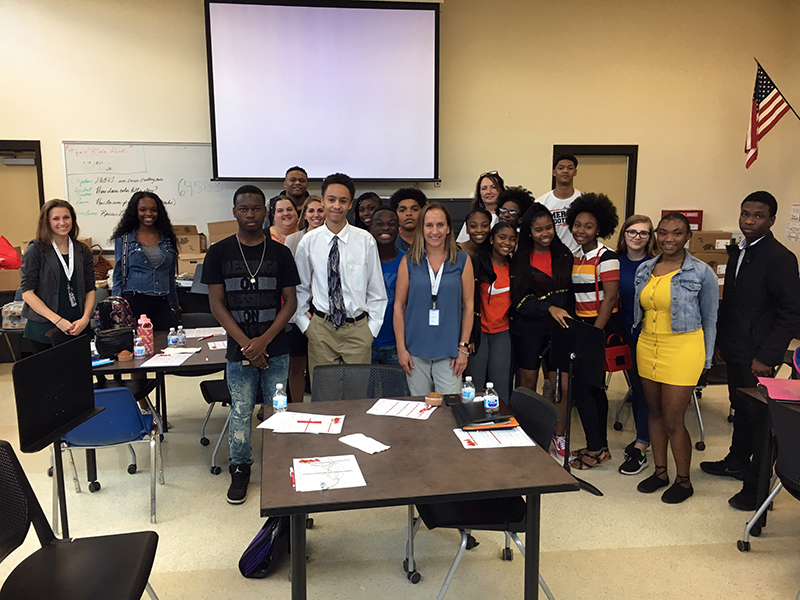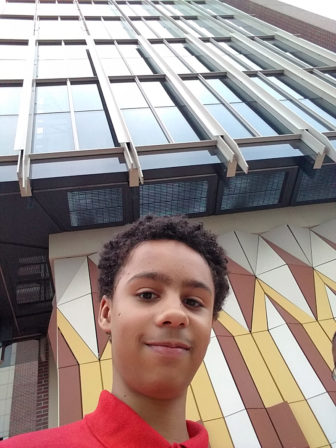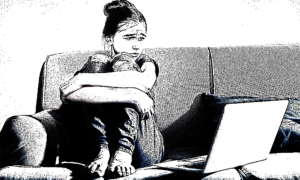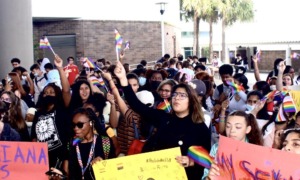
Courtesy of Brandon Griggs
Hear the Youth met with Duval County school district leadership on May 23.
Statistics recently released by the Florida Department of Juvenile Justice illustrate a grim reality for the outcomes of most individuals who have ever gone through the juvenile court system as teens or even younger. Not only are they far more likely to be incarcerated again than adults, with recidivism rates for young offenders reaching as high as 84%, but they are also significantly more prone to experiencing poverty even if they do not return. Sadly, it makes sense why.
These youth, mere children who are still in the process of finding themselves, are catapulted back into society after being imprisoned for years at a time, and our juvenile justice system leaves it up to them to somehow rehabilitate themselves. Not to mention that they are expected to do this having already missed out on the opportunity to get an education or receive vocational training, things many employers require, during the span of their detention.
Factors like these, combined with our juvenile justice system’s lack of reintegration programs and support services, are what create this perpetual cycle of release and re-incarceration that ensnares so many at-risk youth, one that is nearly impossible to stop once it has begun.
However, what we also know is that most kids’ first contact with the juvenile justice system begins in school, with as much as 462 in-school arrests being made each year in certain Florida counties. So what if, instead of attempting to reform what is already a hopelessly broken juvenile justice system, we work to prevent students from ever reaching the back of that police cruiser in the first place via in-school intervention?
That’s where Hear the Youth comes in. Having started in one of the worst schools within one of the most dangerous, crime-ridden neighborhoods in Jacksonville, otherwise known as “the murder capital of Florida,” we are no strangers to these problems. In fact, as minorities, we are almost five times more likely to experience the kinds of encounters with the juvenile justice system I have just described.
Listen to teens
However, that is exactly what makes us different, for unlike countless other organizations that have tried and failed to address this issue, we are operated entirely by young people who have experienced the juvenile justice system firsthand, just like those who it is our mission to help. This allows us to bring authentic voices from real teens to the table and connect them with school officials to create genuine change in our education system.

Brandon Griggs
From meeting with the superintendent of Duval County Public Schools (DCPS) to discuss the need for more empathetic policing practices to holding school board members accountable for the correlation between Jacksonville’s extremely high illiteracy and incarceration rates, we began to realize that our voices were some of the most powerful instruments out there for bringing attention to these often-neglected issues that teens face.
Soon, these conversations grew into wider-scale town hall-style meetings between hundreds of youth and local officials, expanding our impact citywide. Now, as a result of our efforts, DCPS is introducing new school board policies that would provide resources to accommodate at-risk students who are more prone to engage in crime because of their lack of support. In addition, Chartwells has committed to returning once each quarter to evaluate student lunch concerns, something that is essential for many of the teens whose families can’t afford to provide meals for them, driving these kids to steal the food they need.
However, despite all that we have accomplished, I think it is more important for us to realize the broader lesson to be learned from this: When we allow people who have experienced things like violence, crime and poverty firsthand to lead our reform efforts, we can effectively create change: people like myself, and the many other students (who should otherwise have ended up dead or incarcerated according to the statistic) who helped found this project as a means of putting the juvenile in juvenile justice.
So the next time you see a problem in your community, don’t wait for it to reach the desk of your state or local representatives. Take action on it now, because while you may not have much “experience” in the traditional sense, you know far more than anyone else about the things that impact youth and what we should be doing about them.
To get involved, contact me on Twitter: @Brandon92782914 or become an activist in your own community by becoming active locally and attending community meetings to raise awareness for what you are passionate about.
Brandon Griggs is the founder of Hear the Youth and a junior at Robert E. Lee High School. He currently serves as the only teen member of his city’s crime reduction task force, where he strongly advocates for juvenile justice reform.































